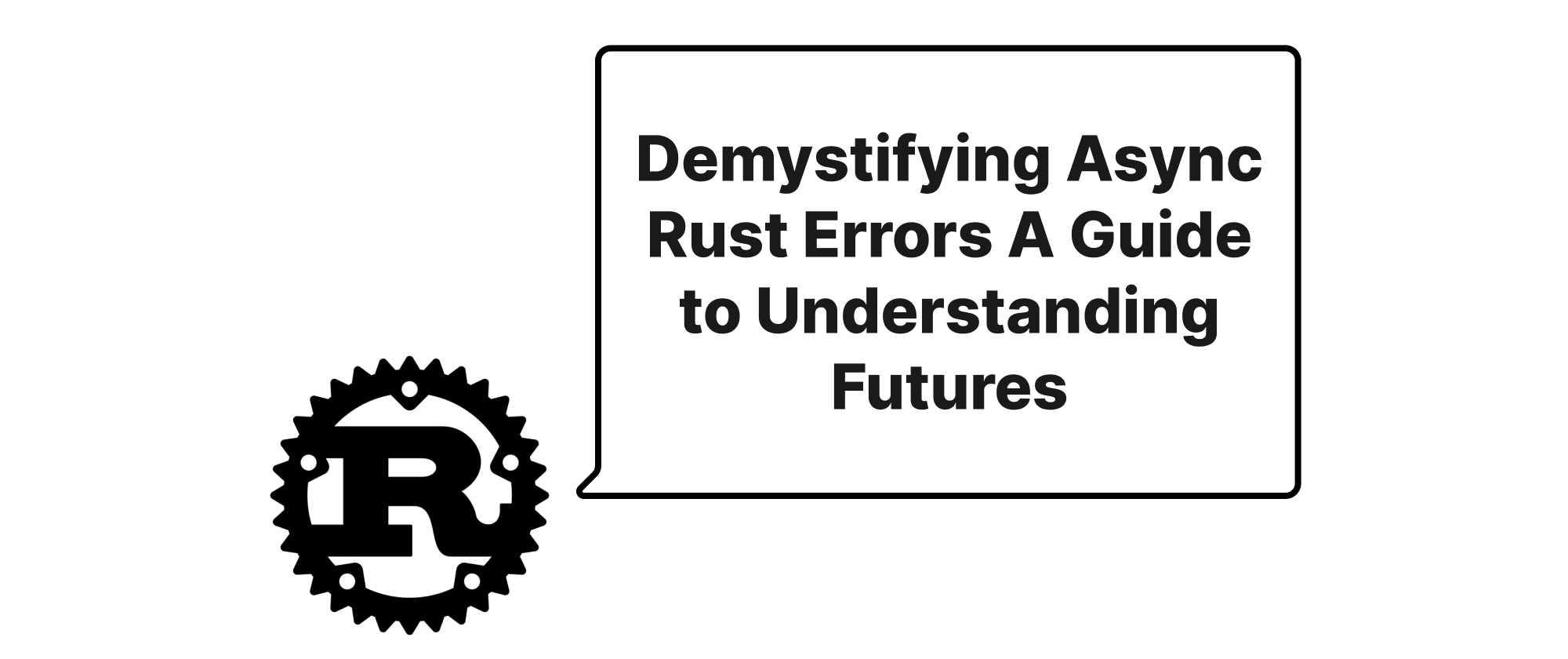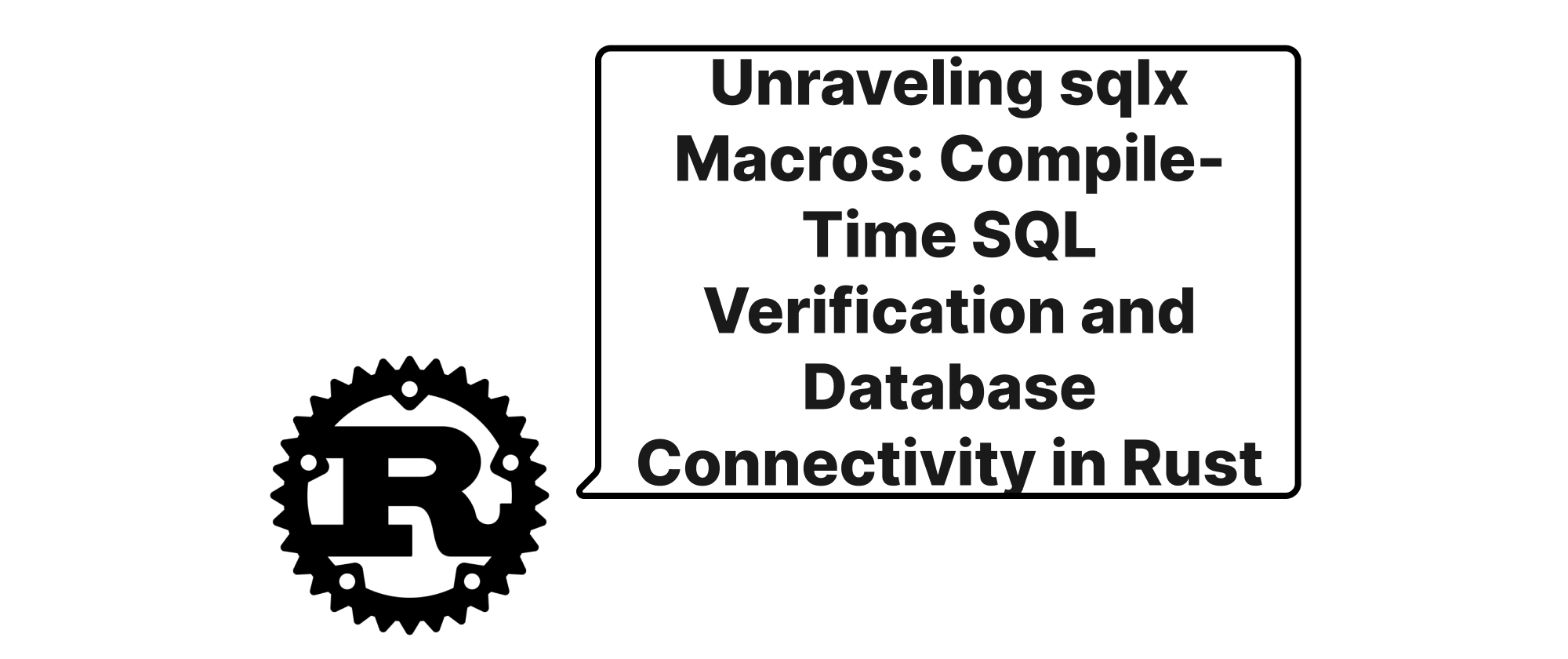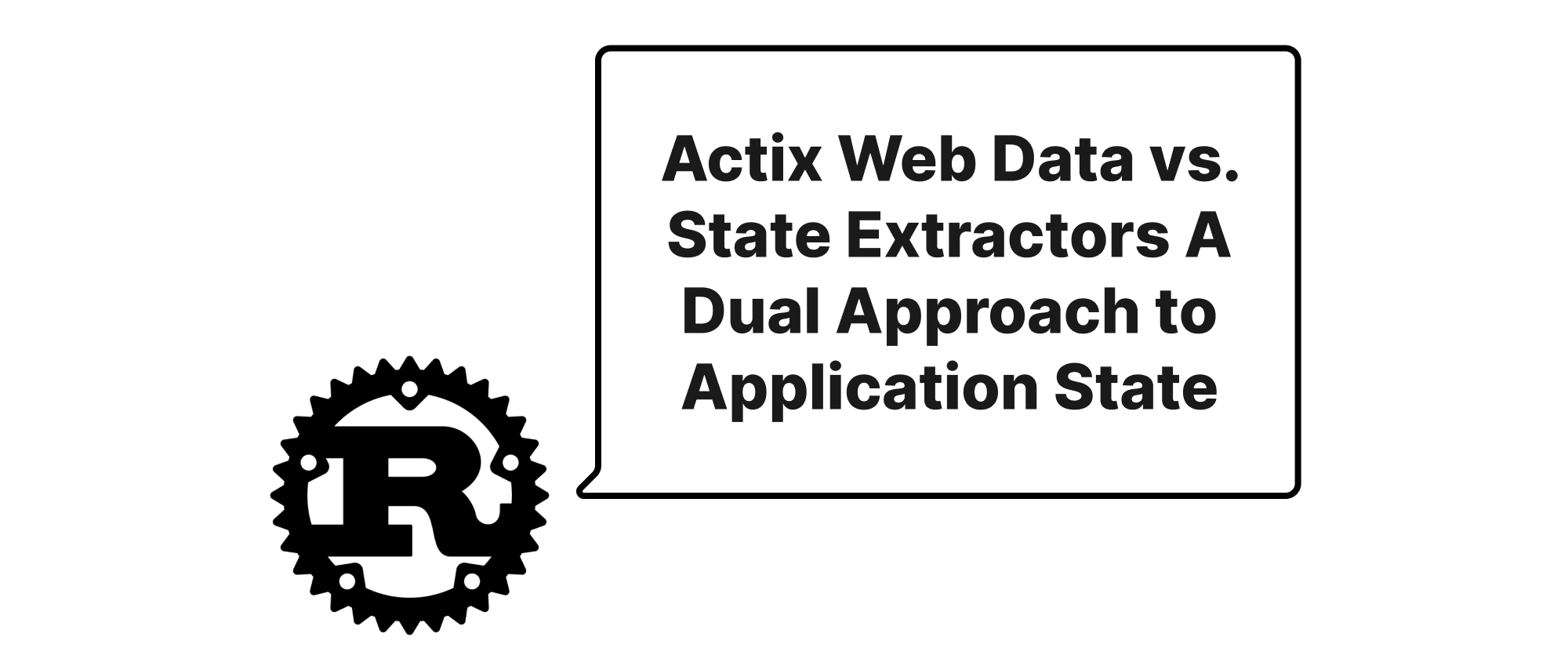Demystifying Async Rust Errors A Guide to Understanding Futures
James Reed
Infrastructure Engineer · Leapcell

Why Async Rust Error Messages Are Often Cryptic and How to Read and Debug Future Related Type Errors
Introduction
Rust's async programming model, built around the Future trait, offers unparalleled performance and concurrency without the runtime overhead of garbage collection. However, anyone who has delved into async Rust will likely attest to a common, often frustrating experience: enigmatic compilation errors. These error messages, particularly when dealing with Futures, can seem like a dense wall of type parameters, lifetimes, and trait bounds, making debugging a daunting task. This isn't a flaw in Rust's design but rather a direct consequence of its strict type system and zero-cost abstractions working together. Understanding these errors is crucial not just for fixing them, but for truly grasping the underlying mechanics of async Rust. This article aims to demystify these cryptic messages, providing a roadmap for interpreting and debugging Future-related type errors, ultimately leading to a smoother async development experience.
Unraveling the Mysteries
Before we tackle the error messages themselves, let's establish a foundational understanding of the core concepts that frequently appear in async Rust types and, consequently, in its error messages.
Core Terminology
FutureTrait: At its heart, aFuturerepresents an asynchronous computation that may eventually produce a value. TheFuturetrait has a single method,poll, which attempts to advance the computation.
Notice thepub trait Future { type Output; fn poll(self: Pin<&mut Self>, cx: &mut Context<'_>) -> Poll<Self::Output>; }self: Pin<&mut Self>parameter. This is critical.Pin:Pinis a wrapper type that prevents its contents from being moved. This is essential forFutures that might contain self-referential pointers (e.g., a state machine whose internal state points back to itself). If such aFuturewere moved in memory, these pointers would become invalidated, leading to undefined behavior.Pinguarantees that once a value is pinned, it will not be moved until it is dropped.PollEnum: Thepollmethod returns aPoll<T>enum, which can be eitherReady(T)if the computation is complete and yields a valueT, orPendingif the computation is not yet finished and needs to be polled again later.ContextandWaker: TheContextprovides thepollmethod with aWaker. TheWakeris used by theFutureto notify the executor when it's ready to be polled again (e.g., when an I/O operation completes).async fnandimpl Future: Anasync fnin Rust is syntactic sugar for a function that returns an anonymous, opaque type that implements theFuturetrait. For example,async fn foo() -> Tis roughly equivalent tofn foo() -> impl Future<Output = T>. The actual type returned by anasync fnis a state machine generated by the compiler.- Lifetimes (
'a,'b, etc.): Lifetimes ensure that references are valid for as long as they are needed. In async code, lifetimes can become particularly complex becauseFutures often capture references from their environment, and these references must remain valid acrossawaitpoints.
Dissecting Cryptic Errors: Examples and Solutions
Let's look at common scenarios that lead to mysterious compile errors and how to interpret them.
1. Future cannot be sent between threads safely (Sized/Send/Sync issues)
This error often arises when trying to use Futures across thread boundaries or with executor designs that require Send bounds.
use std::future::Future; use std::pin::Pin; use std::task::{Context, Poll}; use std::thread; struct MyNonSendFuture { // A raw pointer or non-Send type, making the Future non-Send data: *const u8, } impl Future for MyNonSendFuture { type Output = (); fn poll(self: Pin<&mut Self>, _cx: &mut Context<'_>) -> Poll<Self::Output> { Poll::Ready(()) } } async fn run_task() { let my_future = MyNonSendFuture { data: std::ptr::null() }; // This line would cause an error if `my_future` is not Send // thread::spawn(|| { // If we tried to spawn a raw future here // await my_future; // }); my_future.await; // This is fine on the current thread } fn main() { // If you try to spawn a future that captures non-Send data on a multi-threaded executor // This will lead to compile errors if `MyNonSendFuture` is not Send. // Example: tokio::spawn(run_task()); // If MyNonSendFuture was captured by run_task }
The error message would typically highlight that MyNonSendFuture (or the underlying generated Future from async fn) does not implement Send.
How to Read: The compiler is telling you that the Future (or some data it captures) does not satisfy the Send trait bound, which is often required when moving objects between threads (e.g., when using tokio::spawn or a thread::spawn that needs to own the future).
How to Debug:
- Identify the non-
Sendtype: The error message usually points to the specific type that isn'tSend. This could be a raw pointer,Rc,Cell,RefCell, or a type containing them directly or indirectly. - Is
Sendstrictly necessary? If you are working with a single-threaded executor,Sendmight not be required. Otherwise, you need to make the typeSend. - Refactor:
- If using
Rc, switch toArcfor thread-safe reference counting. - Replace
RefCellwithMutexorRwLockfor thread-safe interior mutability. - If capturing raw pointers, ensure their safety or pass data by value/
Arc. - If dealing with
async fn, ensure all data captured acrossawaitpoints isSend.
- If using
2. lifetime may not live long enough (Lifetime Mismatches)
This error is very common when an async fn or Future captures references that don't live long enough for the Future to complete. The Rust compiler ensures all references are valid across await points.
async fn process_data(data: &str) -> String { // Imagine some async operation that takes time tokio::time::sleep(tokio::time::Duration::from_millis(10)).await; format!("Processed: {}", data) } #[tokio::main] async fn main() { let some_data = String::from("hello"); // This is fine let _result = process_data(&some_data).await; // Consider a scenario where `data` is dropped before the future completes // This pattern is explicitly disallowed by Rust's stricter lifetime analysis // fn create_task<'a>(data: &'a str) -> impl Future<Output = String> + 'a { // process_data(data) // } // // { // let s = String::from("world"); // let task = create_task(&s); // task captures reference to `s` // // s is dropped here, while task is still alive and might await on `s` later // // If we tried to `tokio::spawn(task)` here, it would be a compile error // } // // The error usually manifests when the Future is spawned or moved, // // and the compiler checks its lifetime bounds. }
The error message would trace back to the lifetime of data (or similar reference). It often says borrowed value does not live long enough or static extent not satisfied.
How to Read: The Future you've created (often implicitly by an async fn) holds a reference to some data (&str in this case). This reference needs to be valid for the entire duration the Future might be polled, potentially across multiple await points. The compiler has detected that the data being referenced will be dropped before the Future can finish using it.
How to Debug:
- Pass by value: The simplest solution is often to clone the data or convert it to an owned type (
String,Vec<u8>) and pass it into theasyncblock orasync fn. This ensures theFutureowns the data and it lives as long as theFuturedoes.async fn process_owned_data(data: String) -> String { // takes String tokio::time::sleep(tokio::time::Duration::from_millis(10)).await; format!("Processed: {}", data) } #[tokio::main] async fn main() { let some_data = String::from("hello"); let _result = process_owned_data(some_data.clone()).await; // clone it } movekeyword: Forasyncblocks, useasync move { ... }to explicitly move all captured variables into theFuture's state.async fn main() { let s = String::from("world"); let task = async move { // `s` is moved into the async block tokio::time::sleep(tokio::time::Duration::from_millis(10)).await; println!("{}", s); // s is owned by the future }; task.await; }Arcfor shared ownership: If multipleFutures need access to the same data, wrap it in anArc.use std::sync::Arc; async fn process_shared_data(data: Arc<String>) -> String { tokio::time::sleep(tokio::time::Duration::from_millis(10)).await; format!("Processed: {}", data) } #[tokio::main] async fn main() { let some_data = Arc::new(String::from("hello")); let task1 = process_shared_data(some_data.clone()); let task2 = process_shared_data(some_data.clone()); tokio::join!(task1, task2); }
3. the trait 'FnOnce<...>' is not implemented for '...' (Closure/FnOnce issues with await in loops)
This often pops up when trying to use await inside a for_each or a similar combinator that expects an FnOnce closure, but the async block's state machine might implicitly become non-FnOnce due to await points.
async fn do_something_async() { tokio::time::sleep(tokio::time::Duration::from_millis(1)).await; } #[tokio::main] async fn main() { let numbers = vec![1, 2, 3]; // This will likely cause a compile error if not handled carefully // because the `for_each` closure needs to be FnMut or Fn for subsequent calls, // but the `async move` block effectively consumes its environment (FnOnce-like) // and cannot be called multiple times if it captures mutable state or awaits. // // tokio::stream::iter(numbers) // .for_each(|n| async move { // println!("Processing {}", n); // do_something_async().await; // }) // .await; // // The specific error depends on the combinator, but it points to the closure not satisfying // the required Fn trait. // Correct way for many async streams: for n in numbers { println!("Processing {}", n); do_something_async().await; } // Or for async streams (if using `futures` crate functions like `for_each_concurrent`): // use futures::stream::{for_each_concurrent, StreamExt}; // use futures::future::join_all; // // let tasks = numbers.into_iter().map(|n| { // async move { // println!("Processing {}", n); // do_something_async().await; // } // }); // join_all(tasks).await; }
How to Read: The error is telling you that the closure you provided isn't compatible with the trait (e.g., Fn, FnMut, FnOnce) that the higher-order function expects. Specifically, an async {} block desugars into a state machine that implements Future. If this state machine captures variables by value (e.g., async move {}) or mutably, calling it repeatedly effectively consumes it, making it FnOnce. Many iterator/stream combinators expect closures that can be called multiple times (Fn or FnMut).
How to Debug:
- Understand
Fn,FnMut,FnOnce: Review the differences between these closure traits.FnOncemeans the closure can be called only once. - Identify the conflict: The
asyncblock, because it generates a state machine, often implicitly becomesFnOnceif it captures variables that are moved into it or performs operations that consume its state (likeawaitinganother future it exclusively owns). - Refactor with Iterators/
join_all: For collections, instead offor_each, often it's clearer and more idiomatic to.mapthe items into aVec<impl Future>, and then usefutures::future::join_allto await them concurrently or sequentially. - Consider explicitly creating
Futures: If a combinator needs to execute the same future many times, it implies the future shouldn't capture mutable or consuming state. You might need to create new futures for each iteration.
General Debugging Strategies
- Read from the bottom up: Rust error messages typically present the culprit line of code first, followed by a detailed explanation and a "note" section. Sometimes, the initial error message is a symptom, and the true cause is earlier in the code or in a dependency. Reading "from the bottom up" can help identify the root cause among complex type signatures.
- Focus on
fnandasync fnsignatures: The types involved in argument lists and return types forasync fns are crucial. Ensure lifetimes andSendbounds match expectations. - Break down complex
Futurechains: If you have a long chain ofawaitcalls orFuturecombinators, try to isolate the problematic segment by breaking it into smallerasyncfunctions orletbindings that explicitly type theirFutureoutputs. This helps the compiler give more focused errors. - Use
std::mem::size_of_valandstd::any::type_name: These functions, especially in combination withdbg!oreprintln!, can help you inspect the size and actual type of aFutureor its captured environment, which can often reveal surprising allocations or non-Sendtypes. - Consult
rustc --explain E0XXX: Each error code (E0XXX) in Rust's error messages can be explained in detail by runningrustc --explainwith the code. These explanations are often highly informative. - Simplify and Isolate: When utterly stuck, try to reduce the code to the smallest possible example that still reproduces the error. This often clarifies the actual issue.
Conclusion
Async Rust's powerful capabilities come with a learning curve, and its verbose type errors are a significant part of that. However, these errors are not arbitrary; they are the compiler diligently enforcing Rust's strict safety guarantees. By understanding the core concepts like Future, Pin, and lifetimes, and by applying systematic debugging strategies, you can transform intimidating error messages into valuable insights. Reading these errors is not just about fixing bugs; it's about deepening your understanding of the async runtime and writing more robust, efficient, and safe concurrent code. Embrace the compiler as a strict but wise mentor, and you'll soon find yourself navigating the async landscape with much greater confidence.


